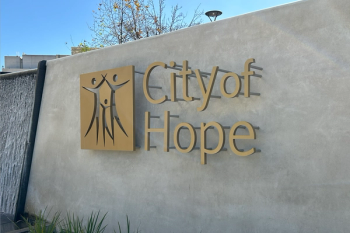
Though rare and typically presenting as transient, a case study demonstrates severe, chronic neutropenia in a patient with multifocal motor neuropathy treated with intravenous immunoglobulin (IVIG).

Though rare and typically presenting as transient, a case study demonstrates severe, chronic neutropenia in a patient with multifocal motor neuropathy treated with intravenous immunoglobulin (IVIG).

Wafa Samara, PharmD, vice president and chief pharmacy officer at City of Hope, highlights the vital role of oncology pharmacists at City of Hope in improving patient outcomes, conducting and leading research, and working as integral members of the multidisciplinary care team.

If approved, vutrisiran would be the first FDA-approved therapy to treat both the polyneuropathy and cardiomyopathy aspects of transthyretin amyloidosis (ATTR).

Long-acting injectables offer a promising approach to schizophrenia treatment, but their effective use requires careful management and patient education.

In older postmenopausal women, leukocyte count was found to be an independent predictor of long COVID symptom severity, highlighting its potential for use as a novel symptom biomarker.

Conference Co-Chair and American Association for Cancer Research (AACR) Past President Elaine R. Mardis, PhD, explains that the conference provides pharmacy professionals with insights into the application of large-scale cancer genomics studies to real-world therapeutic responses.

The outbreak has grown to a total of 222 confirmed cases of measles, as well as 2 measles-associated deaths.

Pharmacists also navigate the REMS program and monitor and manage adverse effect profiles associated with bispecifics.

Michael McGuire, PharmD, highlights the importance of early intervention in hospital settings, leveraging manufacturer programs, and navigating complex dosing regimens.

The treatment is currently undergoing evaluation in an investigational preclinical program and is projected to be in human trials in 2026.

A team of clinical and academic experts from the Association of Anaesthetists produced a consensus statement outlining the key components to minimizing the impact of harmful alcohol intake in the surgical population.

A pilot program integrated oncology pharmacists into prior authorization workflows to streamline and expedite medication approvals.

Subcutaneous infusion reduces treatment times for patients and eases operational burdens for providers.

Policymakers and health care providers call for reforms to improve transparency, pricing, and patient access.

Specialty pharmacists are critical for enhanced management of clinical and logistical aspects of treatment.

A brief period of overeating ultra-processed, high-calorie snacks could lead to liver fat accumulation and temporary disruption of brain insulin action.

At 1- and 2-year follow-up points, ruxolitinib led to considerable improvements in survival in patients with myelofibrosis who develop graft-versus-host disease (GVHD).

Unlike other professionals such as nurses and physicians, pharmacists remain tethered to a fragmented state-by-state licensure model that creates unnecessary barriers to care.

Adalimumab biosimilars differ from adalimumab in approved indications, concentration and dosage, and formulation.

Camizestrant is an investigational oral selective estrogen receptor degrader.

The authors’ findings show a greater decline in those treated with chemotherapy vs endocrine therapy.

Following allogeneic hematopoietic stem cell transplantation (allo-HSCT), luspatercept effectively improved signs of anemia in patients with a variety of hematologic conditions.

Pharmacists also educate, advocate, and ensure patients with heart failure with reduced ejection fraction (HFrEF) and anemia are receiving the appropriate regimens.


RSV vaccine acceptance among older adults is significantly influenced by perceived benefits.

The data supports quadruplet therapy’s potential in the first line for patients with newly diagnosed multiple myeloma (NDMM).

The t:slim X2 insulin pump and Tandem Mobi system both use Control-IQ.

Given the increasing age of patients with generalized myasthenia gravis, knowing which therapies are most effective for different subgroups is essential.

Notable advancements include machine learning and predictive analytics, among others.

Small and/or rural hospitals present a great opportunity for self-development and actualization.